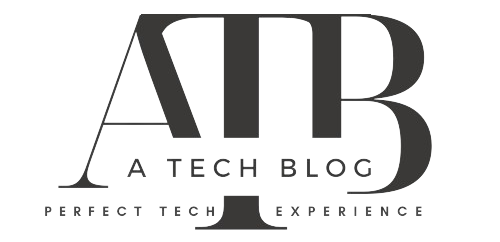Artificial Intelligence (AI) in Healthcare: Unlocking the Potential. In the domain of medical care, the reconciliation of artificial intelligence (AI) is altering how clinical experts analyze sicknesses, treat patients, and oversee medical care frameworks. From prescient investigation to customized medication, AI is reshaping the scene of medical care, offering the monstrous potential to work on persistent results, improve functional effectiveness, and drive advancement across the business.
Enhanced Diagnostics and Disease Detection With AI
One of the main commitments of artificial intelligence in medical care is its capacity to improve diagnostics and illness discovery. High-level AI calculations dissect huge measures of clinical information, including patient records, imaging checks, and hereditary data, to distinguish designs and anticipate potential medical problems. For instance, artificial intelligence-controlled symptomatic devices can decipher clinical pictures like X-beams, X-rays, and CT checks with amazing exactness, helping radiologists identify anomalies and making quicker, more exact analyses.
Personalized Treatment and Precision Medicine
Artificial intelligence is additionally driving the shift towards customized treatment and accurate medication. By dissecting a patient’s hereditary cosmetics, way of life elements, and clinical history, artificial intelligence calculations can fit treatment plans to individual requirements, boosting viability and limiting secondary effects. This approach empowers medical services suppliers to convey designated treatments that are more qualified to every patient’s extraordinary attributes, prompting further developed therapy results and upgraded patient fulfillment.
AI in Predictive Analytics and Preventive Care

One more key utilization of artificial intelligence in medical services is a prescient examination, which uses AI to figure out potential health results and recognize dangerous patients before side effects manifest. By dissecting information from electronic health records, wearable gadgets, and different sources, simulated intelligence calculations can hail people who are inclined toward specific circumstances or are showing early indications of sickness. This proactive methodology empowers medical care suppliers to intercede early, execute preventive measures, and oversee constant circumstances, at last decreasing medical services costs and further developing populace wellbeing.
Streamlined Operations and Healthcare Management
In past clinical applications, AI smoothed out medical care activities and the board processes. Managerial errands like planning arrangements, overseeing clinical records, and handling protection cases can be robotized utilizing artificial intelligence-controlled frameworks, opening up medical services experts to zero in on understanding consideration. Also, prescient investigation can advance asset portion, staffing levels, and stock administration, guaranteeing that medical services offices work proficiently and cost-successfully.
Challenges and Considerations with AI
While the expected advantages of AI in medical care are immense, a few difficulties and contemplations should be addressed to understand its maximum capacity. These incorporate information protection and security concerns, administrative consistency, calculation inclination, and the requirement for continuous schooling and preparing for medical care experts. Moreover, there is a developing requirement for interdisciplinary coordinated efforts between medical services suppliers, information researchers, specialists, and ethicists to foster capable artificial intelligence arrangements that focus on quiet health, decency, and straightforwardness.
Ethical Considerations and Patient Privacy

While the combination of artificial intelligence in medical care achieves various advantages, it additionally raises moral contemplations and concerns regarding patient protection. With the immense measure of information being gathered and examined, there is a need to guarantee that patient data is secured and utilized capably. Medical care associations should comply with severe information security guidelines like HIPAA (Health Care Coverage Convenience and Responsibility Act) in the US and GDPR (General Information Assurance Guideline) in Europe to defend patient secrecy and protection freedoms.
Besides, there is a gamble of calculation predisposition, where artificial intelligence frameworks may unintentionally propagate existing variations and imbalances in medical services. For instance, on the off chance that preparing information used to foster simulated intelligence calculations isn’t illustrative of different populaces, it can prompt one-sided results in finding and treatment proposals. Tending to algorithmic predisposition requires progressing observing, assessment, and refinement of artificial intelligence frameworks to guarantee decency and value in medical services conveyance.
The Role of Healthcare Professionals using AI
Despite the progressions in artificial intelligence innovation, the job of medical services experts remains imperative. While AI can expand and uphold clinical independent direction, it can’t supplant the skill, compassion, and human touch given by medical care suppliers. Doctors, attendants, and other medical services experts assume an urgent part in deciphering artificial intelligence-produced bits of knowledge, speaking with patients, and conveying customized care that considers the more extensive social, close to home, and social variables impacting health results.
Furthermore, there is a requirement for nonstop schooling and preparation to furnish medical services experts with the information and abilities expected to successfully use artificial intelligence devices and advancements in their training. Clinical schools, nursing programs, and other medical services preparing organizations should coordinate man-made intelligence training into their educational plan to guarantee that people in the future of medical services experts are ready to tackle the capability of man-made intelligence in conveying top-notch patient consideration.
Collaboration and Innovation with AI in Healthcare

The fruitful joining of artificial intelligence in medical care requires coordinated effort and organization between different partners, including medical care suppliers, innovation organizations, administrative bodies, and patient promotion gatherings. By encouraging a biological system of joint effort and advancement, partners can cooperate to create and convey artificial intelligence arrangements that address the most squeezing difficulties in medical care conveyance.
Besides, interest in innovative work is vital for advancing the field of artificial intelligence in medical services and driving nonstop development. Government organizations, generous associations, and confidential area financial backers assume a basic part in subsidizing research drives that investigate new utilizations of simulated intelligence, approve the viability of artificial intelligence-driven mediations, and address key moral and administrative contemplations.
Integration of AI into Clinical Practice
The incorporation of AI into clinical practice is a multi-layered process that includes cautious preparation, execution, and assessment. Medical care associations should survey their framework, information capacities, and labor force preparation to use artificial intelligence advances successfully. This remembers money management for hearty IT frameworks for information assortment, stockpiling, and investigation, as well as guaranteeing that medical services experts approach preparing and backing to utilize artificial intelligence instruments successfully.
Besides, the reception of artificial intelligence in medical services requires purchases from clinicians, overseers, and different partners inside medical services associations. Clear correspondence about the advantages and impediments of artificial intelligence, as well as straightforward strategies regarding information protection and security, are crucial for building trust and advancing acknowledgment among medical services suppliers.
Patient Empowerment and Engagement With AI

Using AI in healthcare can enable patients to play a more dynamic job in dealing with their health and prosperity. Through customized health applications, wearable gadgets, and virtual health associates, patients can get continuous health data, keep tabs on their development, and get customized proposals for way-of-life changes and preventive measures.
Also, AI-driven chatbots and menial helpers can upgrade patient commitment by giving convenient data, responding to questions, and working with correspondence with medical care suppliers. This works on the patient experience as well as empowers more productive and powerful medical care conveyance, especially in remote or underserved regions where admittance to medical services administrations might be restricted.
The Future of AI in Healthcare
Looking forward, the eventual fate of AI in healthcare holds a massive commitment to changing the conveyance of care and further developing health results. Progresses in artificial intelligence-driven advancements, for example, regular language handling, prescient examination, and automated a medical procedure will keep on extending the capacities of medical services suppliers and work on tolerant consideration.
Besides, the coordination of AI with other emerging innovations like genomics, telemedicine, and wearable sensors will empower more customized and proactive ways to deal with medical care conveyance. This incorporates early recognition of illness, designated medications, and accuracy of medication custom-made to individual patient requirements.
Conclusion
All in all, AI in healthcare can change by working on analytic precision, customizing therapy plans, and upgrading medical service tasks. Its enabling patients to assume command over their health. While there are difficulties and contemplations related to the incorporation of simulated intelligence into clinical practice, the advantages far offset the dangers.
By embracing AI-driven advancements capably and cooperatively, medical services suppliers can upgrade the quality, and availability. Effectiveness of medical services conveyance, eventually prompting better health results for people and populations around the world. As we keep on exploring the developing scene of artificial intelligence in medical services. It is fundamental to focus on understanding security, and protection. And also value while outfitting the groundbreaking force of man-made intelligence to propel the eventual fate of medical care.

